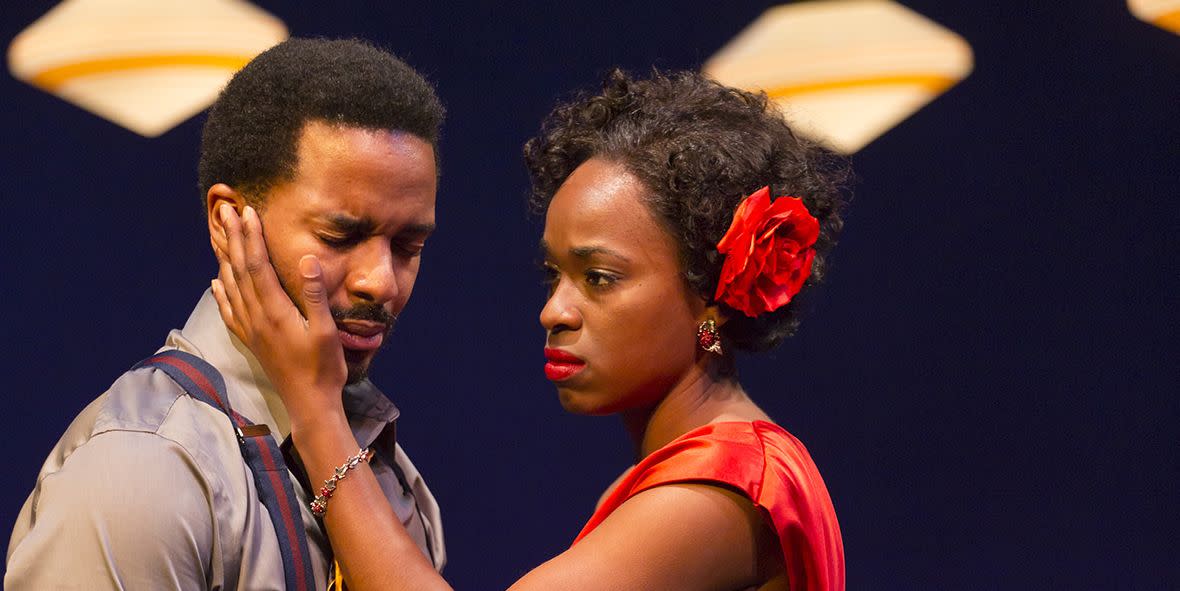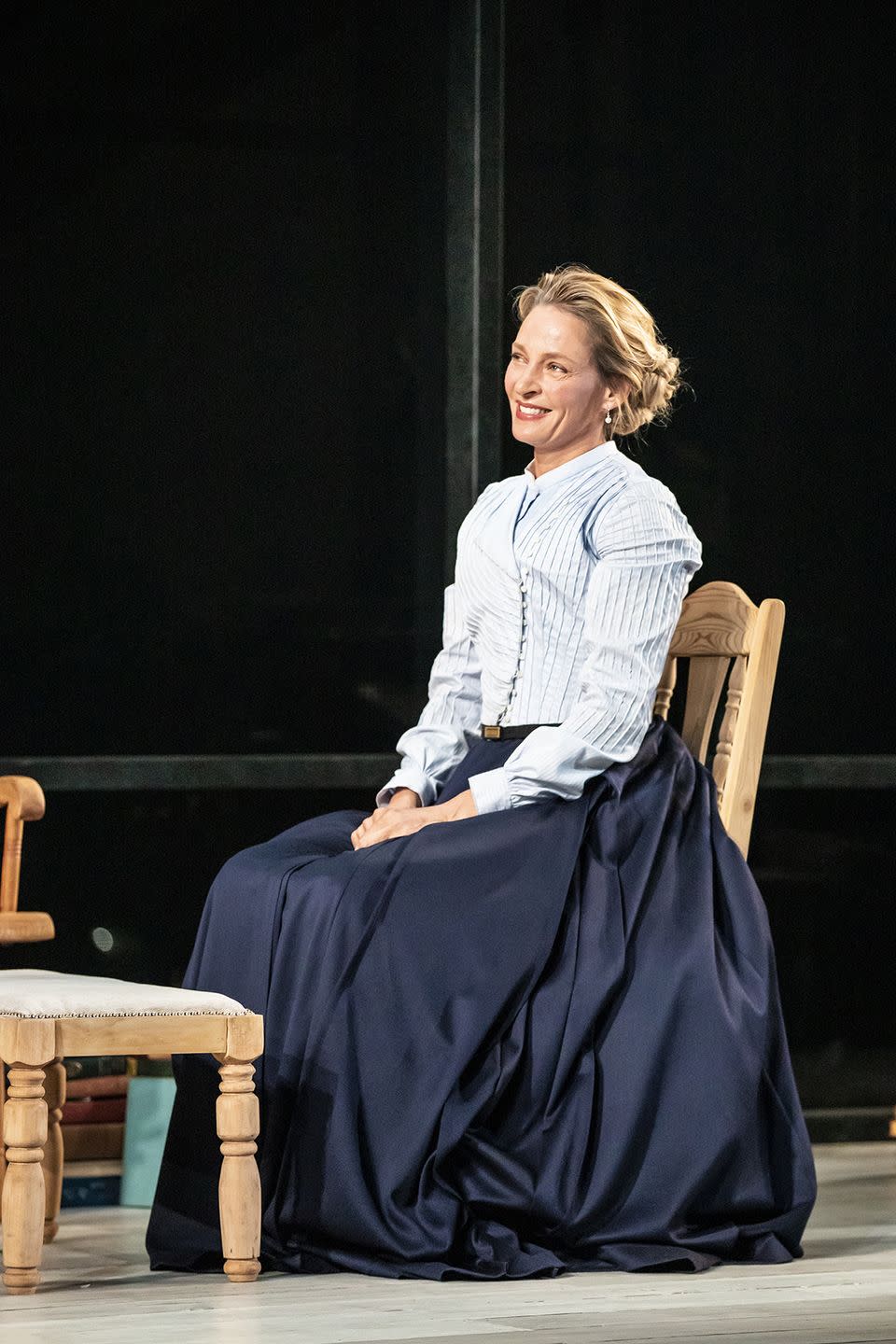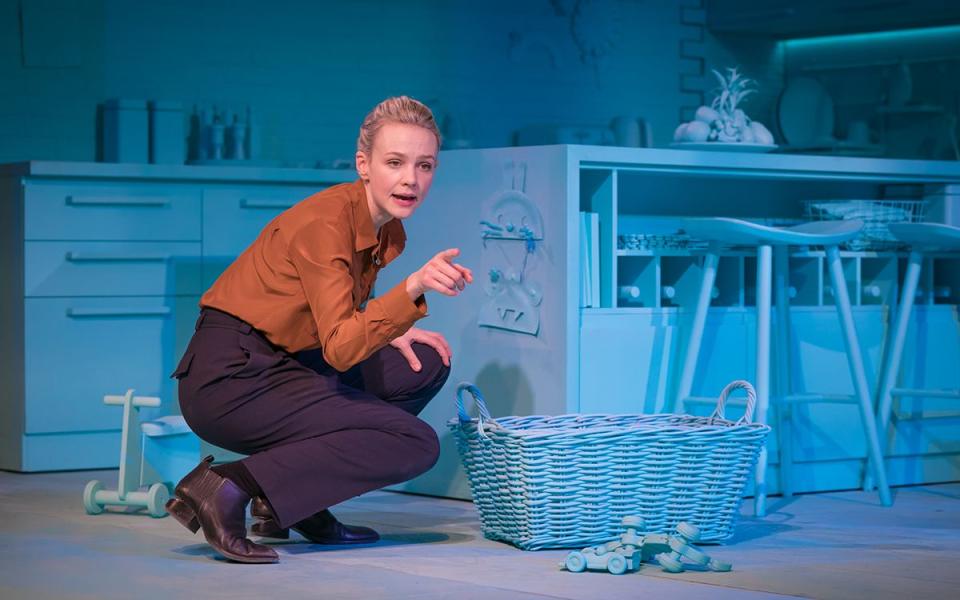Inside the Williamstown Theatre Festival's Unexpected, Inventive New Season

When playwright Dominique Morisseau’s Paradise Blue had its world premiere at the Williamstown Theatre Festival in 2015, it was shown on the organization’s main stage in a production directed by Ruben Santiago-Hudson and starring De’Adre Aziza, Blair Underwood, and Andre Holland. On March 25, when Williamtown’s new production of the drama centered around a Detroit jazz club premiered—once again directed by Santiago-Hudson and featuring Holland and Underwood—it had an entirely different treatment.
Paradise Blue is Williamtown’s latest virtual endeavor, known as WTF on Audible, which will feature seven shows produced specifically for listening via the audio storytelling provider. So far, the season has included director Robert O’Hara’s production of A Streetcar Named Desire, starring Audra McDonald and Carla Gugino, a Susan Stroman–directed Photograph 51, starring Anna Chlumsky and David Corenswet, the world premiere of Stacy Osei-Kuffour’s Animals, directed by Whitney White and starring Jason Butler Harner and Aja Naomi King, and Shakina Nayfack’s Chonburi International Hotel & Butterfly Club, directed by Laura Savia. After Paradise Blue premieres, two final shows—Wish You Were Here (out April 1) and Row—will round out the season.

Listening to a play as if it were a podcast isn’t quite the same as embarking on a trip to bucolic Williamstown, Mass. to take in a show and luxuriate in the cultural scene of the Berkshires, but for theater fans, it’s a way to enjoy theater while theaters are, for the most part, still dark.
"I was trying to make sure that I took the opportunity of just using audio to see if I could make it more impactful, if I could empower Dominique’s incredible play even further," Santiago-Hudson says. "My job was to translate it from one medium to another, but in the process, I challenged myself to see if I could make it even more powerful by harnessing sound—the sound of words, passion, music all melded together. When I listened to it, I was very happy."
The plan for WTF on Audible began in the earliest days of the coronavirus pandemic. “I think it was like March 8, just as the magnitude of the pandemic was unfurling,” say Mandy Greenfield, Williamstown Theatre Festival’s artistic director. “I couldn't read, I couldn't watch TV, I couldn't engage in social media. It just felt like at every turn, the cascade of bad news was mounting. It was actually when I turned to my earbuds and podcasts that I that my imagination was engaged. I could block out the noise of the outside world and have an experience in my head that felt human.”
As it became clear that Williamstown, which has been producing its famous summer theatrical season since 1954, wouldn’t operate as usual, Greenfield decided to try something new. “One morning, after what happened to have been a sleepless night, I called Kate Navin at Audible and said, ‘I can see that we're not going to be able to do a live season this summer. Do you want to make an all-audio season with Audible?’ And almost immediately it was a yes.”

Audible had a history of working in live theater. It produced a series of plays at Manhattan’s Minetta Lane Theatre—including Girls & Boys, starring Carey Mulligan, and Harry Clarke, starring Billy Crudup—that were then released as audio-only experiences on its platform. It has also commissioned audio versions of new plays and Broadway hits. (Upcoming productions include the premiere of Tonderai Munyevu’s Mugabe, My Dad & Me and an adaptation of The Sound Inside with original Broadway actors Mary-Louise Parker and Will Hochman.) Still, what they’re doing with Williamstown—releasing a full season curated by the festival but with no corresponding live productions—is a departure.
“When I decide what Audible theater is going to be producing, there are so many things we're looking to balance,” says Navin, head of scripted content for Audible. “Obviously, we want to bring really high profile, exciting performances that people tend to not be able to get to for a whole host of reasons, but we're also deeply committed to emerging voices and have seen great success with those projects; our listeners love them. So, Mandy sort of brought all of those pieces together and handed it to us in a way that made it an easy yes.”
If the partnership was simple to build, the plays themselves proved more complicated. “In the earliest days of the pandemic, we had this idea that we would put everyone in a studio to essentially simulate, at some level, a live theatrical experience in-person and capture it for audio,” Greenfield explains. “Then we had a second pivot when it was clear that wasn’t going to happen and not only would we be making an all-audio season, but we’d also be making it entirely remotely.”

The process hasn’t been without its challenges. “The interesting thing about having to do everything virtually, where physicality isn't really going to help you, is that it’s going to force me to center in a way fairly quickly that I could've gotten away with not centering,” McDonald, who played Blanche DuBois in Streetcar, told T&C earlier this year. “I literally will not have Stella to reach out and grab. All of it is going to happen with the words and the language and what is going on in an internal aspect for the character. That's fascinating for me; scary but fascinating.”
Greenfield notes that the endeavor required everyone involved to be open to learning new ways of creating theater. “There are limitations,” she says of presenting performances outside of their traditional home. “People have done beautiful work on Zoom, but it's not a medium that I could figure out how to use in a way that had, to me, the potential of audio. With Audible, there's a sophistication to the work that they're doing, and I just found that to be a more dynamic, interesting, and ultimately more artful way into the work that we were wanting to make.”
Of course, everyone’s hoping to be back in Williamstown seeing live shows at some point soon—but that doesn’t mean the lessons learned from this audio season will be forgotten. “My biggest takeaway is that this is a way of producing that shouldn't go away,” Greenfield says. “I feel like we have learned a way to facilitate the opportunity: [actors] don't have to be in the same city and we can work around schedules with a new layer of flexibility. We get people who are based in London in shows with people in L.A. without being disruptive; that feels like something we will continue.”

The all-audio season has also given Williamstown the chance to open up its programming to an audience beyond just those who can make their way to Western Massachusetts in the summer, giving the festival a global reach and the chance to stream into the ears of millions of fans, reaching them right where they are. Even when live performance comes back, it’s hard to imagine that this kind of scale is something the festival or its fans will want to give up.
“I think we've all been really surprised in a positive way about how fulfilling this has all been,” Navin says. “I'm truly, sincerely grateful to the artists for trusting us on this adventure and bringing us this exquisite work. It's been really, really great for the soul.”
You Might Also Like
